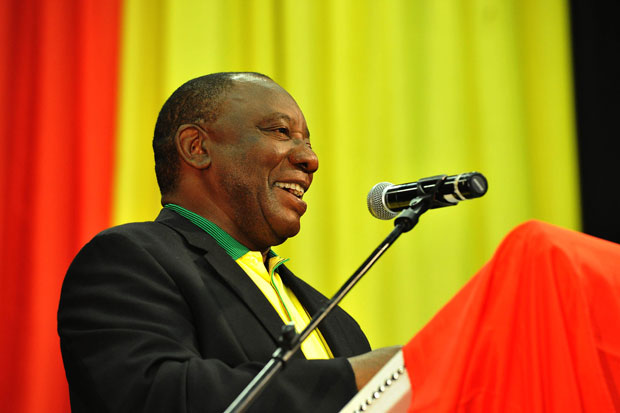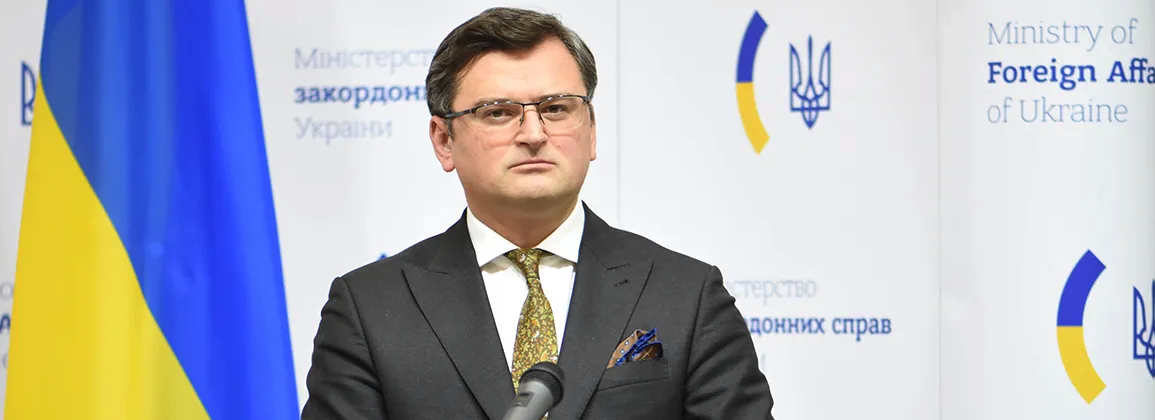News
The ANC is Not Fit for Purpose in an Open Democratic Society — and Most South Africans Now Agree
South Africa has arrived at its moment of truth. Will we seize the day or will we continue to wade through the treacle of old loyalties, old policies and old global alliances towards slow but certain failure?

Research Director, The Brenthurst Foundation

Director, The Brenthurst Foundation

On the eve of the ANC’s December 2022 conference, The Brenthurst Foundation released its scenarios for South Africa under the heading ‘The Good, The Bad, The Ugly and a Fistful of Cents’.
The direst of these four scenarios was “The Ugly” — one in which the ANC’s RET faction seized the leadership of the party and, after polling in the low 40% range in the 2024 election, formed an alliance with the EFF, which shares most of its recidivist economics.
In such a scenario, we argued, South Africa would embark on a road to rapid state and market failure, leading to massive disinvestment, hyperinflation, a currency in freefall and the reversal of the democratic freedoms enshrined in the Constitution.
It is now clear that the ANC’s RET faction was decisively defeated at the conference, a fact illustrated by the party’s decision to fire Carl Niehaus, the party’s loony-left court jester. That Niehaus remained in the party’s ranks despite his repeated public criticisms of its leaders, policies and actions, illustrates how in thrall to the populists the party has been.
So, with the “ugly” scenario off the table for now, what is the likely direction that the party will take? Will it become the agent of the economic reforms needed to bring about the “good” scenario? Or will it continue with the “bad” scenario which has prevailed for more than a decade — indecisiveness, an inability to clean up corruption, and a civil service riddled with costly incompetence?
Or, will it head in the direction of the “Fistful of Cents” scenario, symptoms of which are already on display? In this scenario, a small, greedy elite dominates the state and economic life, with the crumbs of welfare payments dropping off its table, while a weak state lacks the will or competence to act.
Ramaphosa, the great prevaricator
All eyes are now on President Cyril Ramaphosa as he charts the way forward.
While Ramaphosa has acted against State Capture by attempting to improve the prosecuting authority and by speaking out against it in public, he has become the great prevaricator when it comes to reforming the South African economy.
When he was elected ANC president in December 2017, he delayed because he first needed the levers that come with the presidency of the country. When he became President of the country in February 2018, he delayed because he needed to accommodate the old Zuma-ites — and other reform-proof ideologues — in his Cabinet.
Years passed while the all-important national task of unifying the ANC at all costs played itself out to the disenchantment of the country, which was enduring ever-greater periods of energy darkness and the collapse of passenger and freight rail services.
When Ramaphosa eventually did act, appointing André de Ruyter to sort out Eskom and announcing energy reforms that would finally harness the private sector as well as reforms to the rail network to finally rebuild the looted logistics enterprise, his announcements were ignored, even contradicted by his own ministers and then half-heartedly implemented by bureaucrats without the skills or the will to make them happen.
Ramaphosa announced the government’s intention to pursue the “just transition” from coal to renewables in energy but his minerals and energy minister, Gwede Mantashe, laughed him off and declared that he was a “coal fundamentalist”. Years passed while nothing was done, and, when something was finally done, it was anaemic and ineffectual.
Illustrating this “one step forward, two steps back” approach was the dramatic failure of Bid Window 6 in October last year.
As rolling blackouts bit hard, Mantashe announced the intention to procure a record 5.2GW of additional energy for the grid. Some 9.6GW was proposed by bidders. But only 860MW — less than a fifth of the target amount — was procured, apparently because of a grid connection problem. Some saw government bungling, others saw a “coal fundamentalist” quietly laughing to himself.
In December, it emerged that Transnet had bungled the awarding of 16 rail network slots to private operators. Only one of 19 bids was successful, because the terms were wholly unrealistic.
Transnet expected bidders to invest hundreds of millions of rands in equipment with a 30-year lifespan in exchange for a two-year contract. As Mesela Nhlapo, the CEO of the African Rail Industry Association, pointed out, financial institutions backing such projects require a seven to 10-year horizon.
What these instances illustrate is how it is not enough for Ramaphosa to announce grand reforms. It is his job to ensure that the government departments and the state-owned enterprises required to implement the reforms are themselves reformed. They must be staffed with competent people empowered to run complex institutions and acquire the skilled persons required to make the reforms happen.
The ANC acts as a handbrake
Instead of supporting and driving these reforms, the ANC acts as a handbrake. It holds on to cadre deployment which leads to bungling and corruption, and its grandees must be humoured with senior executive positions even when they are patently out of their depth.
The ANC remains internally focused, grimly determined to project itself as a party of the old left to save face even as its leaders make their billions in business. As Ramaphosa was fighting for another term as ANC president, dockworkers were loading and unloading unspecified cargo from a sanctioned Russian ship at the Simon’s Town naval base and De Ruyter was preparing his resignation speech, the smell of cyanide in the air.
In short, the ANC is not fit for purpose in an open democratic society and most South Africans now agree with this. A survey conducted by The Brenthurst Foundation in November last year found that the ANC was set to fall below 50% in the 2024 general election, with some 78.6% of those surveyed saying they would like a coalition to run the country. This is a loud message from the electorate. They want leaders to put their heads together and get on with fixing the country.
Ramaphosa has barely a year in which to persuade voters to stay with his party or he will preside over a coalition government for his final term. It is an almost impossible task as rolling blackouts continue and the implementation of his reforms remains erratic.

Reforming the ANC into an effective agent of modernisation and reform is, in any event, nigh impossible. It has become a machine dependent on cadre-deployment patronage, committed to being a “liberation movement” serving the old cadres, rather than a modern party which serves those who make democracies’ biggest decisions — the voters.
Politicians are speaking out. One of the fiercest critics recently said: “The collapse of many municipalities has had a devastating impact on citizens who must on a daily basis deal with sewage spills, water shortages, uncollected garbage, countless potholes, unmaintained cemeteries, and inaccurate billing.” Actually, those words were from Ramaphosa, following the playbook where the ANC is everything — the government and its fiercest opposition all in one party.
Liberation movements across southern Africa remain hostage to the absence of baked-in democratic ideals, education, systems and structures, and prey to the temptation of populist promises and prophets. Across the region, political liberation has, in every case, been quickly supplanted by payback, essentially replacing one oligarchy with another.
So far, none of Frelimo in Mozambique, the MPLA in Angola, Zanu in Zimbabwe or Swapo in Namibia has shown much appetite for reform. Reforms would alter the structure of the colonial inheritance, which thrived on monopolistic protections and vested interests. It explains why they grimly hold on to the racial and colonial shibboleths, even though, as the Brenthurst survey shows, most of the citizens see the problem differently.
And even if the ANC were to acknowledge itself as the problem (which it sometimes inadvertently does), and admits it (so far, unlikely), it has to act against its own institutional interests and instincts to remedy it (which is not likely at all).
Thus, the problem with South Africa’s reform process remains political. The challenge is not just the state of the ANC, however, but the state of opposition politics. The arrival of small, personality parties risks the Balkanisation of opposition politics. Yet, essentially many of these wannabe parties are offering a brand of ANC politics without the goody bag. The larger entities, including the DA and the IFP, are yet to build a strong enough national and multiracial (and ethnic) personality to win outside of a coalition, in part because of factionalism and in part because of their own dynamics. And so South Africa is stuck.
Getting back to the scenarios for South Africa, there can be some satisfaction, for now, that the RET faction has been confined to barracks and put on starvation rations. The temptation to say that we have turned the corner is large, but the obstacles are too many. Unless there is a decisive break with the past, South Africa is still heading for the “Ugly” scenario, where the government fails to act and the country slides slowly into failure, where the elites buffer themselves through populist gestures, retaining control and privilege while distributing crumbs of welfare for the unemployed masses.
Despite the surge of Ramaphoria 2.0, is there any rational reason why the ANC will behave any differently to other liberation movements such as Zanu when its grip on power is threatened?
This article originally appeared on the Daily Maverick
Photo: GovernmentZA Flickr

